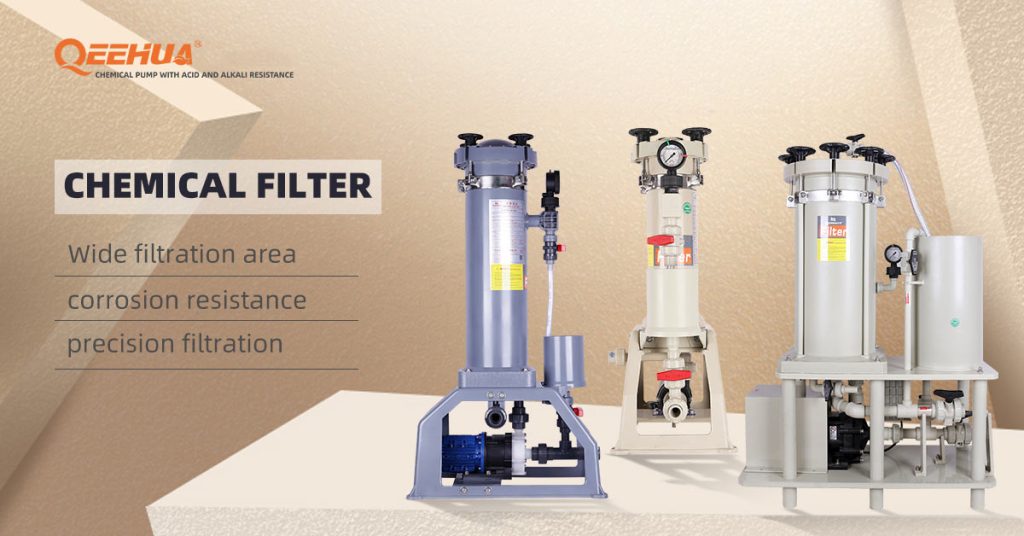
# Electroplating Chemical Filtration System Optimization
Electroplating is a critical process in various industries, including automotive, electronics, and jewelry manufacturing. The quality of the electroplated product heavily depends on the purity of the chemical solutions used. Contaminants in these solutions can lead to defects, reduced adhesion, and poor surface finish. Therefore, optimizing the electroplating chemical filtration system is essential for maintaining high-quality standards and operational efficiency.
## The Importance of Chemical Filtration in Electroplating
Chemical filtration in electroplating serves to remove impurities such as particulates, oils, and organic contaminants from the plating solutions. These impurities can originate from various sources, including raw materials, process residues, and environmental factors. Effective filtration ensures that the plating bath remains clean, which is crucial for achieving consistent and high-quality plating results.
### Types of Contaminants in Electroplating Solutions
– Particulates: Dust, dirt, and other solid particles can cause surface defects and uneven plating.
– Oils and Greases: These can lead to poor adhesion and blistering of the plated layer.
– Organic Contaminants: Residues from cleaning agents or other organic materials can interfere with the plating process, causing discoloration and reduced corrosion resistance.
## Key Components of an Electroplating Chemical Filtration System
An optimized electroplating chemical filtration system typically includes several key components:
– Pre-filters: These remove larger particles and debris before the solution reaches the main filter.
– Main Filters: High-efficiency filters designed to capture fine particulates and contaminants.
– Activated Carbon Filters: Used to remove organic contaminants and oils.
– Pump and Circulation System: Ensures consistent flow of the plating solution through the filtration system.
– Monitoring and Control Systems: Sensors and controllers to monitor filter performance and maintain optimal conditions.
## Strategies for Optimizing Electroplating Chemical Filtration
Optimizing the filtration system involves several strategies to enhance performance and extend the lifespan of the filters:
### Regular Maintenance and Filter Replacement
Regular maintenance is crucial for ensuring the filtration system operates efficiently. This includes routine inspections, cleaning, and timely replacement of filters. Overused or clogged filters can reduce filtration efficiency and increase the risk of contamination.
### Selection of Appropriate Filter Media
Choosing the right filter media is essential for effective filtration. The selection should be based on the type and size of contaminants present in the plating solution. For example, pleated filters are effective for capturing fine particulates, while activated carbon filters are ideal for removing organic contaminants.
### Optimizing Flow Rates
Maintaining optimal flow rates through the filtration system is critical. Too high a flow rate can reduce the contact time between the solution and the filter media, decreasing filtration efficiency. Conversely, too low a flow rate can lead to clogging and reduced throughput.
### Implementing Advanced Filtration Technologies
Advanced filtration technologies, such as membrane filtration and ultrafiltration, can provide higher levels of purification. These technologies are particularly useful for removing sub-micron particles and dissolved contaminants that traditional filters may not capture effectively.
## Benefits of Optimized Electroplating Chemical Filtration
An optimized filtration system offers several benefits:
– Improved Plating Quality: Cleaner plating solutions result in fewer defects and higher-quality finishes.
– Extended Bath Life: Effective filtration reduces the frequency of bath replacement, saving on chemical costs.
– Reduced Downtime: Regular maintenance and optimized filtration minimize the risk of system failures and production interruptions.
– Environmental Benefits: Efficient filtration reduces waste and the need for hazardous chemical disposal.
## Conclusion
Optimizing the electroplating chemical filtration system is a vital step in ensuring the quality and efficiency of the electroplating process. By implementing regular maintenance, selecting appropriate filter media, optimizing flow rates, and utilizing advanced filtration technologies, manufacturers can achieve superior plating results, reduce operational costs, and contribute to environmental sustainability. Investing in a well-designed and maintained filtration system is essential for any electroplating operation aiming for excellence.
Keyword: electroplating chemical filter
